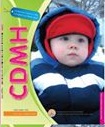A Model to Help Thai Children with ADHD by Instituting Home and School-based Interventions
Main Article Content
Abstract
The purpose of this research was to develop a model to help Thai children witha diagnosis of ADHD by instituting home and school-based interventions. It was thought that
an effective strategy would be one that would monitor three aspects of behavior i.e.
academic work achievement, self-control and social skills in an experimental and control
group. The experimental sampling group was selected using random cluster sampling
techniques. The participants consisted of 16 children diagnosed with ADHD in primary grade
level 4 in the Khon Kaen University Demonstration School, in 2008, 16 parents of childrenwith ADHD and 6 teachers with students diagnosed with ADHD. The tools used to create and develop the model in this research were: (1) Design discussion groups for children with a short attention span (ADHD) (2) Develop an interview form for teachers to conduct in-depthinterviews with parents (3) Develop a group counseling program for children with ADHD (4)Develop training programs with workshops for parents (5) Develop training programs with workshops for teachers (6) Develop the behavior and achievement evaluation form(7) The self-control behavior test (8) An assessment of social skills (9) The observation and behavior control form. Data analysis showing the effectiveness of the model by comparingthe differences between the two groups used the Mann - Whitney U Test. Data analysisreflecting the differences within the groups used the Wilcoxon Signed Rank Test.
The results of this research were (1)The development of a model to study how tohelp Thai children that suffer with ADHD by using home and school interventions via a partnership between parents and the school. Parents have a role in raising their children and the school is involved in consultation with parents and assistance to students related to their learning tasks. (2) The results of the effectiveness of the model to help Thai children with ADHD by using home and school based interventions as the central focus found that the children’s behavior in the experimental group had improved more than the control group. The areas of behavior in the experimental group that were monitored and showed improvement were working achievement and self-control, at a statistically significant level of .05. Their social skills did not show any degree of improvement. In addition, a comparative result within the experimental group before and after the study had found that the behavior of children i.e. working achievement and self-control was higher at a statistically significant level of .05. Social skills remained the same.
Article Details
The authors retain copyright and permit the journal the copyright of first publication
Articles, once having passed the review process and accepted for publication in the CDMH Journal, are copyrighted under the CDMH Journal, Department of Mental Health, Ministry of Public Health. Please be aware distribution of CDMH Journal content for commercial purposes without permission is expressly prohibited. However, distribution with intent to educate, advocate, or spread awareness within the general public and research communities is permitted and encouraged with the understanding that the CDMH Journal Editorial Board do not hold jurisdiction or liability for any accompanying comments, text, or information from third parties, either in favor for or against the original article’s assertions, conclusions, methodology, or content.


